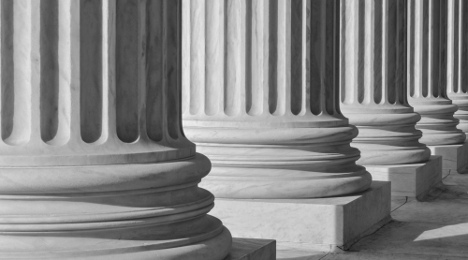AFSA among groups to make argument in debt collection case before Supreme Court

By subscribing, you agree to receive communications from Auto Remarketing and our partners in accordance with our Privacy Policy. We may share your information with select partners and sponsors who may contact you about their products and services. You may unsubscribe at any time.
WASHINGTON, D.C. –
The American Financial Services Association, along with two other industry organizations, recently delivered an amicus brief involving a crucial debt collection case in front of the Supreme Court.
As AFSA highlighted through its Newsbriefs, the U.S. Chamber of Commerce and the Financial Services Roundtable joined AFSA in arguing their points in a case where the nation’s highest court will decide whether a company that regularly attempts to collect debts it purchased after the debts had fallen into default is a "debt collector" subject to the Fair Debt Collection Practices Act (FDCPA).
The matter involves the Supreme Court opting to hear the appeal of a debtor from a decision by the U.S. Court of Appeals for the Fourth Circuit.
Hudson Cook associate Anastasia Caton explained in this alert that the case began when consumer Ricky Henson defaulted on a retail installment sale contract secured by a vehicle. After the original creditor repossessed and sold Henson's vehicle and applied the net proceeds to the balance, Caton noted a deficiency remained.
“Eventually, the creditor sold Henson’s outstanding deficiency to Santander Consumer USA and Santander began collecting Henson's deficiency,” Caton wrote. “Henson sued Santander for various violations of the FDCPA. Santander moved to dismiss on the grounds that it was not a debt collector under the FDCPA because it was collecting the debt on its own behalf, and not on behalf of a third party.
“Santander argued that because it owned the debt that it was collecting, it was a ‘creditor’ rather than a ‘debt collector.’ The U.S. District Court for the District of Maryland agreed, and granted Santander's motion. Henson appealed,” Caton went on to write.
Subscribe to Auto Remarketing to stay informed and stay ahead.
By subscribing, you agree to receive communications from Auto Remarketing and our partners in accordance with our Privacy Policy. We may share your information with select partners and sponsors who may contact you about their products and services. You may unsubscribe at any time.
And now the case is in front of the Supreme Court where AFSA and its fellow industry supporters made their argument clear.
“The Fair Debt Collection Practices Act (“FDCPA” or “Act”) is not a catch-all regulatory regime for any party that collects debts. Instead, it targets only carefully defined categories of ‘debt collectors.’ As relevant here, an entity is a debt collector if it ‘regularly collects or attempts to collect, directly or indirectly, debts owed or due or asserted to be owed or due another,’” the groups said in their document that’s available here.
“That definition unambiguously excludes parties who collect on debt that they own. Such debt is obviously not owed or due another. The FDCPA’s history and purpose confirm what the statutory text plainly provides,” they continued.
“Petitioners’ interpretation of the FDCPA defies its plain text and untethers the statute from Congress’s purpose in enacting it,” they went on to say. “Their reading would result in a dramatic expansion of the FDCPA’s net to snare a range of financial institutions that bear little resemblance to the specialized debt-collection entities Congress intended the statute to cover. That in turn would chill the critically important secondary market for loans and increase the cost of credit to consumers.
“The only beneficiaries would be FDCPA plaintiffs’ attorneys, who would acquire new targets for vexatious litigation under the statute. The court of appeals’ judgment should be affirmed,” they added.


